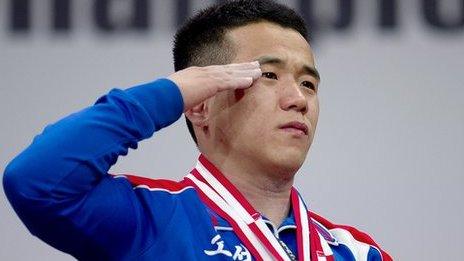North Korean athlete selfie: What happens next?
- Published
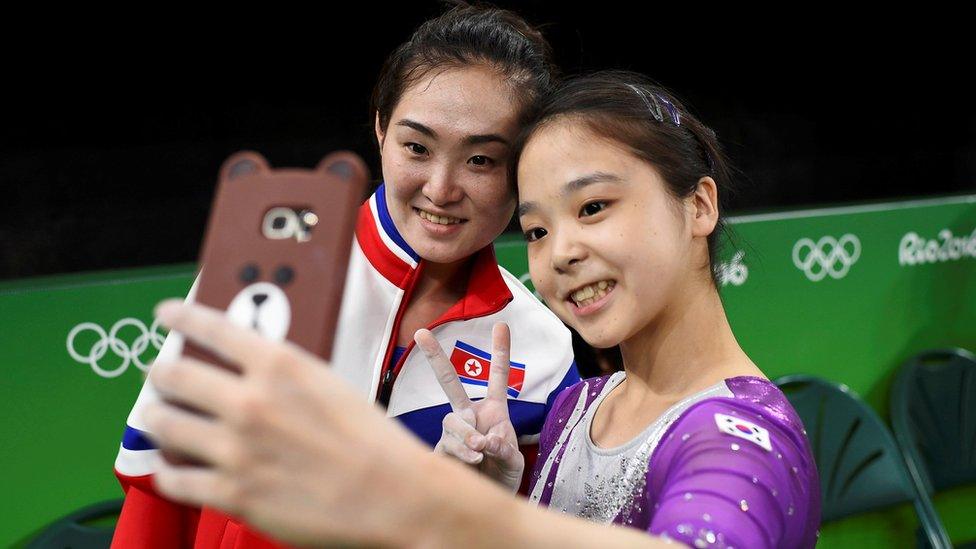
All smiles: This photo has stirred much controversy, and led to many asking if Hong (L) would be punished for taking a photo with a South Korean
Pictures of a North and South Korean gymnast taking a selfie at the Olympics prompted many of you on the BBC's social media sites to ask whether Hong Un-jong would face punishment for fraternising with the enemy. But as North Korea analyst and sports fan Michael Madden explains, that is unlikely to be the case.
North Korea has pursued "sports diplomacy" as a matter of national policy since the 1980s.
It is one - distinctly non-politicised - way for the politically isolated North to interact with the outside world and benefit from intercultural contact and exchanges.
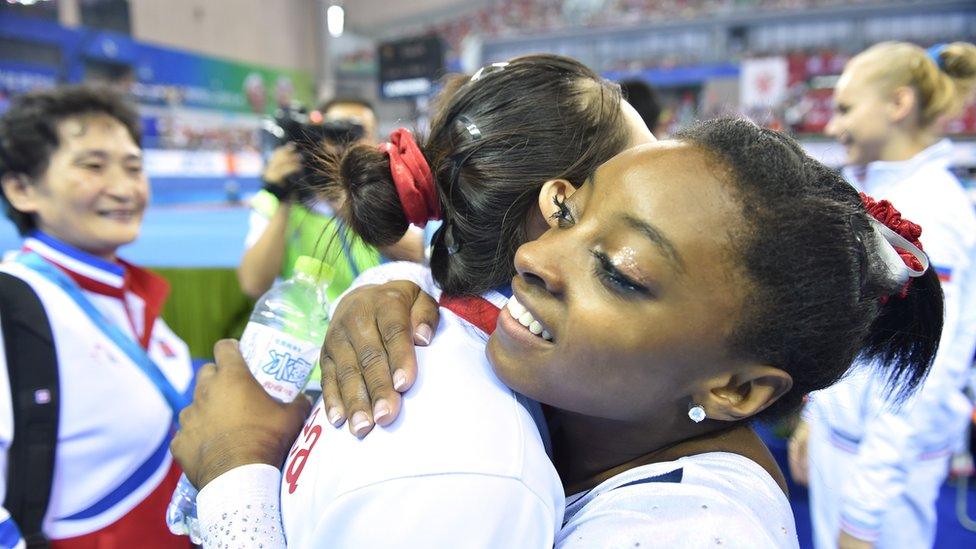
Hong Un-jong has also been seen hugging US champion gymnast Simone Biles
Some cynical and sanctimonious observers label this "propaganda," when in fact, North Korea is pursuing one of the few avenues of public affairs diplomacy available to it. The North even negotiated with Seoul to send a joint Korean team to the 2000, 2004 and 2008 Summer Olympics, though it has never panned out.
For athletes from the Democratic People's Republic of Korea (DPRK), it is an opportunity to represent the country in front of an international audience in spite of the intense pressure of expectations from home.
Claiming that Hong will face the firing squad or a life of hard labour for her selfie with Lee Eun-ju ignores the fact that she was also photographed in 2014 hugging American gymnast Simone Biles at an international competition.
You might think that by embracing an athlete of a country described as a "sworn enemy", Hong Un Jong would have incurred censure and not be permitted to participate in the Rio games.
But that didn't happen.

More Asian stories from Rio 2016

Sports the way to success?
Sport is a fast track to becoming one of the elite in North Korea.
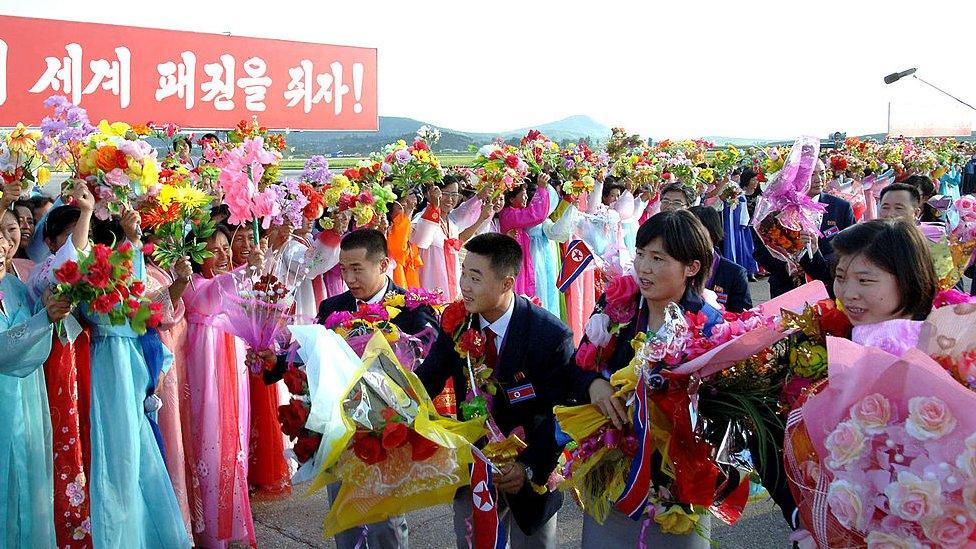
Successful athletes are greeted upon their return home and awarded titles by the North Korean government
Successful athletes are greeted upon their return home and it's reported all over state media. They are given state titles and awards by the North Korean government.
In 2013, "merited" athletes were ceremoniously moved into their own designated, fully furnished apartment housing with members of their families.
State media said that "all sportspersons of the country, inspired by the loving care of the Workers' Party of Korea (WPK), are unanimously resolved to achieve more successful results at international games."
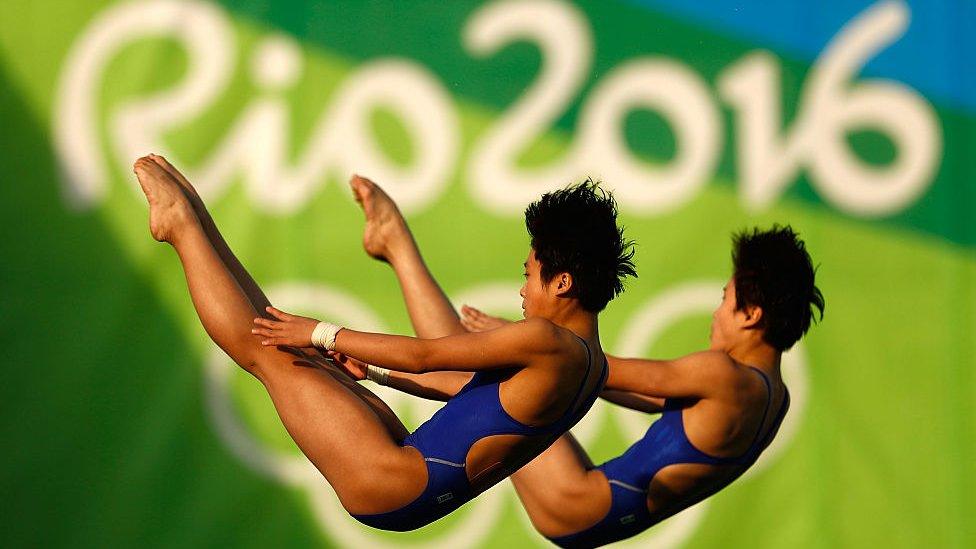
Documentary films, and even feature-length dramatic films, are produced about successful athletes
Those who perform well are given heavy exposure, both in North Korea's internal state media and its public affairs publications for foreign audiences.
Documentary films, and even feature-length dramatic films, are produced about successful athletes.
Since assuming power in 2011, Kim Jong-un has strongly prioritised sport and sports diplomacy.
He has initiated the construction and renovation of competition venues and practice facilities for athletes, mobilising a significant amount of personnel and financial resources in the process.
He has also hosted numerous banquets, receptions and personal interactions with numerous DPRK athletes and sports teams.
Failure to win
The last credible report of North Korean athletes facing very harsh penalties, such as incarceration or execution, for failing to win or perform well at international competitions is 25 years old.
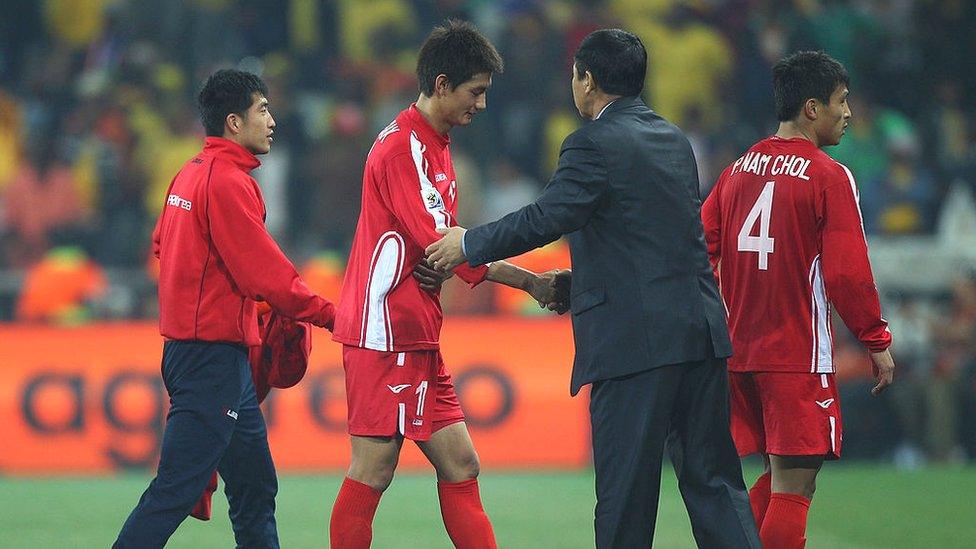
Reports that North Korea's football team were imprisoned after the tournament were never confirmed
In 2010 when the DPRK men's football team failed to win the World Cup a series of media reports conveyed conjecture and unconfirmed reports that the team would be sent to a labour camp.
What really happened illustrates how North Korean athletes who fail to win or perform well are treated.
North Korean athletes are either members of the ruling WPK or still serving their mandatory military service term. As such they would be subject to the disciplinary process of a party or military member.
For athletes this would involve, as it did for the 2010 World Cup Team, the criticism sessions which are part of party life.
During a session, members of a small party group critique one's performance, with several people upbraiding the individual for their substantive performance (or lack thereof) and their perceived ideological failures.
At the end, the person being critiqued then engages in self-criticism and resolves to do better in the future.
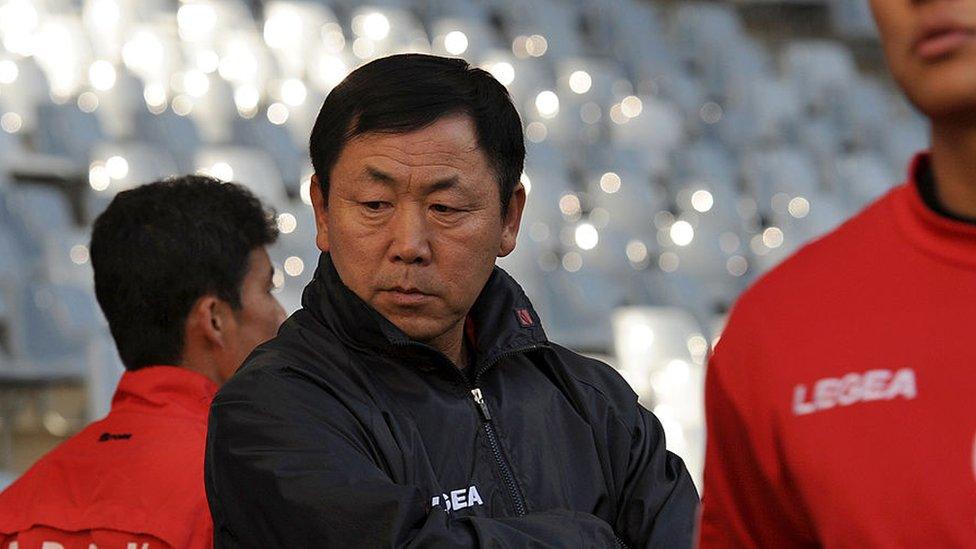
North Korean coach Kim Jong-Hun was allegedly sent away to do construction for a few months
The World Cup team members were brought to a meeting of athletes, coaches and sports officials where they were severely criticised for their failure to win.
The coach, like any other DPRK senior official, was sent away to do construction for a few months before returning to a lower level position in the DPRK Football Association.
The team and the coach were treated like any other group of DPRK officials who didn't perform well. While certainly uncomfortable and jarring to one's self-esteem, these penalties are certainly preferable to being sent away to a prison or being executed.
This was an isolated recent case of what happens to DPRK athletes who don't succeed during competition.
The reality is, the worst that usually happens to athletes who fail to place or win at competitions is that North Korean state media doesn't mention them.
Michael Madden is a Visiting Scholar at the US Korea Institute at the School for Advanced International Studies at Johns Hopkins University
- Published9 August 2016

- Published9 August 2016
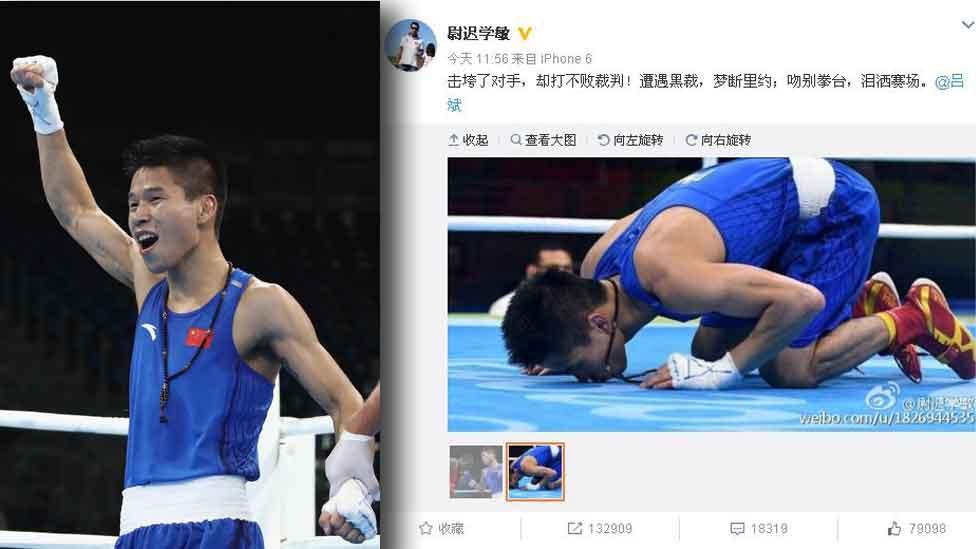
- Published8 August 2016
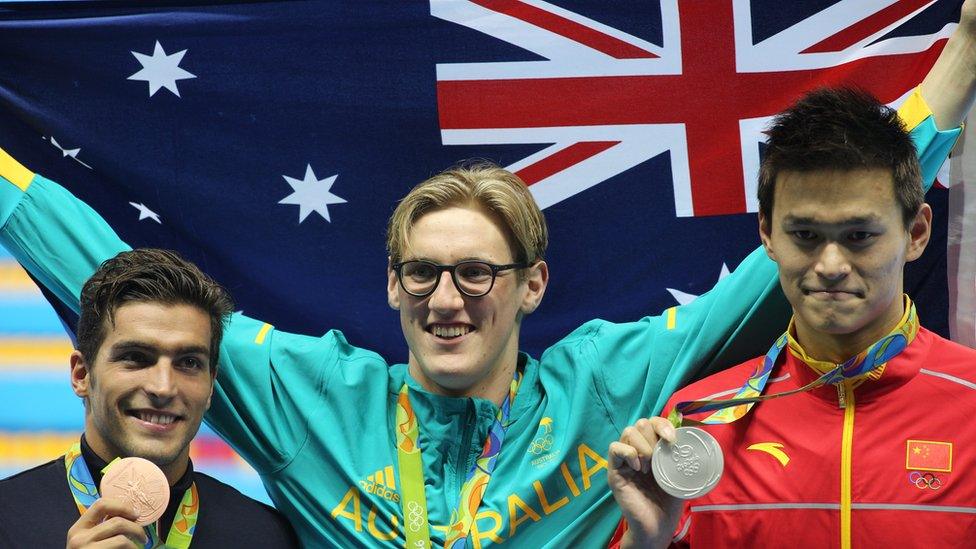
- Attribution
- Published19 November 2015
